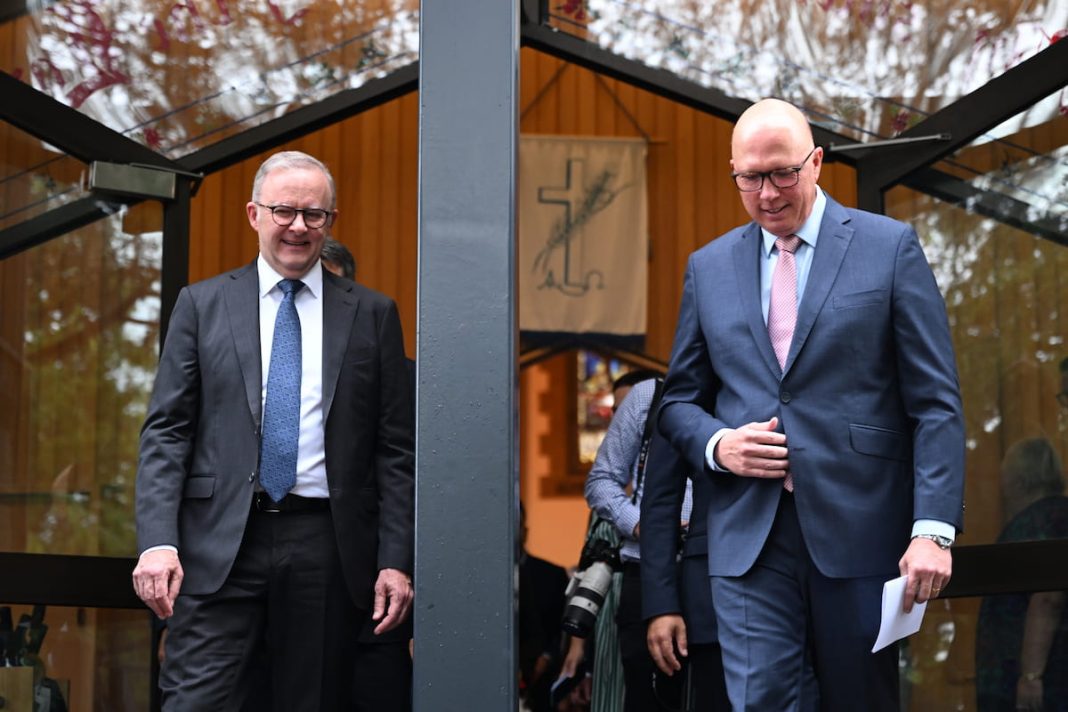A path may have cleared for the government’s amended tax cuts to proceed, as the opposition signals conditional support despite weeks of criticism.
Legislation backing the broader stage three package will be brought to the House of Representatives on Tuesday, as federal parliament meets for the first sitting day of 2024.
The coalition has consistently condemned the government for breaking its election promise to leave the cuts untouched.
But after a meeting of shadow cabinet, the opposition is expected to cement some form of support for the revised plan when it emerges from a joint party room meeting on Tuesday.
Opposition Leader Peter Dutton has meanwhile remained critical.
“Most Australians are still shell shocked by the fact we have a prime minister who has looked the Australian public in the eye and completely told a lie to them,” Mr Dutton told reporters.
He is expected to accept the revised package, however, the coalition will likely ramp up calls for more generous cuts that spare workers the impact of bracket creep when their earnings rise above thresholds that apply a higher tax rate.
Prime Minister Anthony Albanese has maintained the changes were a difficult but ultimately right decision made in the interests of middle and lower income Australians.
Under the revised package, people earning less than $150,000 will receive a greater tax cut, while those earning above that amount will still receive benefits but less than previously forecast.
Mr Albanese had signalled he would want to see the changes pass parliament by Easter before coming into effect in July.
New economic analysis shows electorates held by Nationals MPs would gain most from the altered policy.
Findings released by the Australia Institute reveal voters in Nationals-held electorates would receive a $326 cut, while those in Liberal seats would be $226 better off.
Voters in electorates held by the government would receive an extra $229 per person.
The institute’s senior economist Matt Grundoff said the majority of taxpayers would be winners under the changes.
“National Party electorates are the biggest beneficiaries, to the tune of $451 million over the coming financial year, because the benefits of the modified cuts flow disproportionately to poorer rural electorates,” he said.
“Redistributing the bulk of the tax cuts to low and middle-income earners will help those doing it the toughest while preserving the progressive nature of our tax system.”
By Kat Wong and Andrew Brown in Canberra



